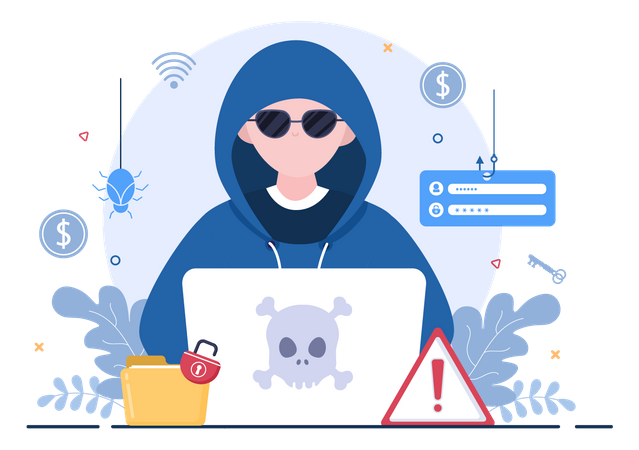Cyber security is the practice of protecting critical systems and sensitive information from cyber attacks and digital vulnerabilities.
These cyber attacks typically try to gain access to, alter, or delete sensitive data; demand money from users; or obstruct regular business operations.
Nowadays, there are more devices than humans, and hackers are getting more creative, making it difficult to implement efficient cyber security measures.
As hackers become more proficient and sophisticated, cyber crime dramatically rises every year. Cyber attacks can occur for many different reasons and in many different ways. Cyber criminals will, however, typically try to take advantage of weaknesses in a company's security standards, procedures, or technology.


Cyber attacks are orchestrated attempts to compromise the confidentiality, integrity, or availability of computer systems, networks, or data. They work through various methods and techniques:
Social Engineering: Attackers manipulate individuals to reveal sensitive information, such as passwords, by posing as trusted entities or using psychological tactics.
Phishing: Cyber criminals send deceptive emails or messages to trick recipients into clicking malicious links or downloading malicious attachments.
Malware: Malicious software, including viruses, trojans, and ransomware, is used to gain unauthorized access, steal data, or disrupt systems.
Denial of Service (DoS) and Distributed Denial of Service (DDoS): Attackers flood a system or network with excessive traffic, overwhelming its capacity and rendering it inaccessible.
SQL Injection: By injecting malicious SQL queries into web forms or applications, attackers exploit vulnerabilities to access or manipulate databases.
Man-in-the-Middle (MitM) Attacks: Attackers intercept and potentially alter communication between two parties without their knowledge.
Brute Force Attacks: Attackers repeatedly attempt different combinations of usernames and passwords until they find the correct one.
Zero-Day Exploits: Attackers target unpatched vulnerabilities in software or hardware that vendors have not yet addressed.
Insider Threats: Malicious or negligent insiders with access to systems or data can intentionally or unintentionally cause harm.
Supply Chain Attacks: Attackers compromise a trusted vendor's products or services to infiltrate a target organization.
Understanding how these cyberattacks work is crucial for organizations to implement effective cybersecurity measures and protect against potential threats.